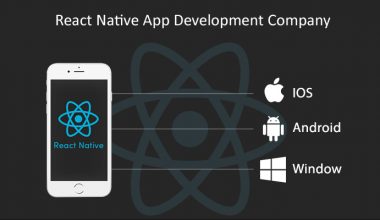The Role of Cloud MES Software in Achieving Up to 30% Cost Reduction
Innovation isn’t a mere choice; it’s an imperative. At every phase of production, from the factory floor to supply chain management, companies are constantly in search of methods to boost efficiency, cut costs, and adapt to the ever-changing global market. In this unending pursuit of operational excellence, Manufacturing Execution Systems (MES) have risen to prominence. These systems serve as the linchpin, orchestrating and optimizing manufacturing processes with utmost precision.

However, while MES has played a pivotal role in streamlining operations, traditional on-premises solutions have often proven to be a double-edged sword. While they offer valuable capabilities, they come burdened with substantial costs and inherent limitations. These limitations encompass everything from the complexities of implementation to the challenges of maintenance, security concerns, and the rapid evolution of software requirements.
The Set-and-Forget Dilemma
Manufacturers have long relied on MES to streamline operations, but traditional on-premises systems often lead to a “set and forget” mentality. This approach is no longer tenable due to evolving cybersecurity threats, the need for the latest software capabilities, and the imperative for agile operations. Cloud-based MES emerges as the solution to address these challenges.
What Is Cloud-Based MES?
Before delving into the cost-saving benefits, let’s define what cloud-based MES entails. It’s a manufacturing execution system hosted in the cloud, exemplified by solutions. These platforms bring a host of advantages to the manufacturing floor.
Lower Costs, Less Maintenance, Better Security
Traditionally, industrial companies hesitated to move their Operational Technology (OT) data and applications to the cloud. However, as Cloud Services increasingly became the go-to solution for enterprise data, manufacturers questioned how to balance plant floor needs with the benefits of cloud technologies.
Cloud-based MES offers compelling cost savings
- Reduced capital expenditures (CAPEX) and operating expenses (OPEX) compared to on-premises implementations.
- Up to 30% lower total cost of ownership (TCO).
- Decreased maintenance requirements, as the latest features and software releases are rapidly provided via the Cloud Services infrastructure.
- Elimination of concerns related to patching the OS and supporting software.
- Enhanced security through vendor-managed security updates.
A Fast Track to Modern Manufacturing
Historically, large companies dominated MES implementations due to their resources. However, MES as a Service level the playing field, enabling manufacturers of all sizes to embrace modern manufacturing operations and empower connected workers.
Cloud-based MES offers fast implementation, and real-time operations optimization, and supports digital transformation, continuous improvement, and lean initiatives. It streamlines processes, reduces human power requirements, and provides tailored solutions for various manufacturing processes.
Advantages of OT Data in the Cloud
Beyond cost savings, cloud-based MES unlocks the full potential of Operational Technology (OT) data in the cloud. This section explores some key benefits:
- Revealing hidden opportunities for operational efficiency improvement.
- OT data in the Cloud Services enables analytics to transform data into actionable insights.
- Predictive maintenance can save up to 12% of scheduled repairs and reduce overall maintenance costs by up to 30%.
- Speed and agility.
Cloud-based OT data accelerates data analysis, enhancing factory productivity.
Operators experience an 85% boost in Manufacturing Execution System productivity when dealing with less on-premises data.
Intelligence and insights.
Cloud Services MES allows for remote data combination and comparison across multiple plants.
Different teams gain access to customized dashboards, optimizing decision-making based on real-time data.
Cost reduction with OT data in the cloud.
Storing operational data is often a compliance requirement, but on-site server costs add up.
Cloud storage reduces on-premises server expenses, resulting in a quick return on investment (ROI).
The Future of Manufacturing with Cloud MES
The adoption of cloud-based MES software is not just a trend; it’s a transformative shift that’s here to stay. As manufacturing becomes increasingly connected, cloud MES will play a pivotal role in enabling Industry 4.0 practices.
Advancements in Edge Computing: Cloud MES will benefit from the growing capabilities of edge computing. By processing data closer to the source, manufacturers can achieve even lower latency and quicker responses, particularly critical in industries like automotive and electronics. This not only improves efficiency but also contributes to cost savings.
Machine Learning Integration: Cloud MES will continue to integrate machine learning and artificial intelligence (AI) for predictive maintenance, quality control, and demand forecasting. These AI-driven insights will help manufacturers optimize processes, reduce waste, and minimize operational costs.
IoT-Enabled Manufacturing: The Internet of Things (IoT) will further enhance cloud MES capabilities. By connecting machines, sensors, and devices, manufacturers gain real-time visibility into their operations. This data can be leveraged for proactive decision-making, leading to cost-efficient resource allocation and improved productivity.
Sustainability Initiatives: Furthermore, Cloud MES holds the potential to bolster sustainability initiatives. With a growing emphasis on curbing energy usage, reducing waste, and optimizing resource utilization, manufacturers are turning to cloud-based analytics. These tools are instrumental in pinpointing areas ripe for enhancement and fostering eco-conscious practices, ultimately leading to substantial long-term cost reductions and environmentally friendly outcomes.
Conclusion
Cloud-based MES isn’t just about immediate cost savings; it’s a gateway to the future of manufacturing. As technology continues to evolve, cloud MES will empower manufacturers with real-time insights, predictive capabilities, and enhanced agility. This ongoing transformation will result in not only reduced costs but also improved operational efficiency and the ability to adapt swiftly to changing market demands. Manufacturers who embrace cloud-based MES are poised to redefine manufacturing efficiency for the future.
In the ever-evolving landscape of manufacturing, cloud-based MES software emerges as a transformative force, delivering substantial cost savings, enhanced efficiency, and data-driven insights. Manufacturers no longer need to adhere to a “set and forget” approach, as cloud MES solutions provide cybersecurity, software updates, and agility that traditional systems can’t match. By moving to the cloud, manufacturers unlock hidden opportunities for operational improvement, gain speed and agility, access real-time intelligence, and reduce costs associated with on-premises data storage. As the manufacturing industry embraces modernization, cloud-based MES stands as a beacon of innovation and cost-effective progress. Embrace the cloud, and redefine manufacturing efficiency for the future.



